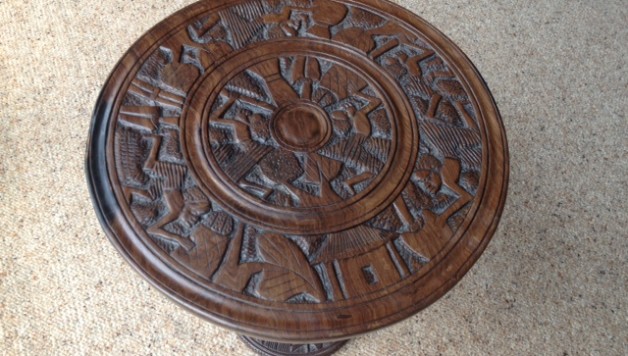What to Do When You’ve Got Too Much Luggage!
We’ve all been there…. everyone has no doubt been in a situation where they’ve over packed or accumulated more stuff than they can easily carry on a trip. The following destinations and situations are familiar to all travellers no matter their attitude toward shopping.
(1) You’re in a cheap country where buying things seems such a great deal and you get carried away. This is especially true of weighty items that are desirable and low priced e.g., Balinese furniture or that Turkish rug you didn’t know you wanted but couldn’t walk away from after getting a ridiculously good deal. I was guilty of this on my first trip to East Africa when I bought, amongst many other things, a small wooden table and 2 spears in Malawi!
(2) America! Everything about America encourages you to shop. You can get all the great stuff you can get in Australia or Europe but virtually everything is priced lower. And, America also has amazing designer discount stores, like Ross Dress for Less, and utopian outlet malls. You can easily accumulate a lot of shoes in America!
(3) Extra weight that creeps up on you after buying a ‘few’ extra items whilst away overseas. You haven’t bought anything major but tiny little extra purchases have your bag bursting at the seams.
So…. What can you do?
Pay for storage
If you know you’re going to be returning to a city but don’t want to lug extra stuff around, you can pay for storage. This is very easy in cities like Bangkok. Hotels often store bags for guests at a low rate (typically less than $1 a day per bag and lower rates for extended periods). Our experience of this is that it is fairly safe and reliable, assuming that the hotel itself is one that you were staying in and is known for providing the service. The problem with this option is that you’ll still need to pay to get it home eventually.
Give it away
Don’t fall victim to the “sunk costs” thinking error. A sunk cost is when you make a poor money decision and you then make future bad decisions because you’re trying to make up for the initial poor decision e.g. When you’ve gambled and lost $300 in Vegas and you keep gambling to try to get it back. Or, when you’ve bought something you didn’t need and then realize that shipping it home is going to cost many times more than you paid for it. If this happens, consider giving items away or selling them. Your mind will easily remember what a “face palm moment” it was to walk away from something you’d paid hard earned money for.
Ship it home
There will be occasions however when you’ve bought things that are very special &/or unique and you need to find a way of getting them home. Check out excess baggage charges you’ll incur from the airlines and then compare these costs with other options. If you’re not flying home soon, calculate storage fees + shipping charges. Look at your options with general mailing services, including just regular snail mail providers if you’re in a reliable country. The likes of Cambodia is NOT, from personal experience. You can also compare the prices of national mail services vs specialist private companies.
Make sure you’re comparing apples with apples, including whether something is insured and guaranteed, and any costs involved in getting to the drop off/pickup location. Factor in time as well as monetary costs, especially if you’re going to be asking a family member to pick up a parcel for you and store it until you get home. You don’t really want them paying for airport parking just to collect your parcel.
Photo: My Malawi table which, together with the spears, I recently sold in a garage sale. I got carried away and bought WAY too many wooden souvenirs and trinkets on my first big OE to Africa. I regretted it as most of them sat around in my house unappreciated for the next 15 years! I posted most of them home by ship, but my favourite wooden statue of a water buffalo arrived with it’s horns broken, despite wrapping it carefully 🙁





